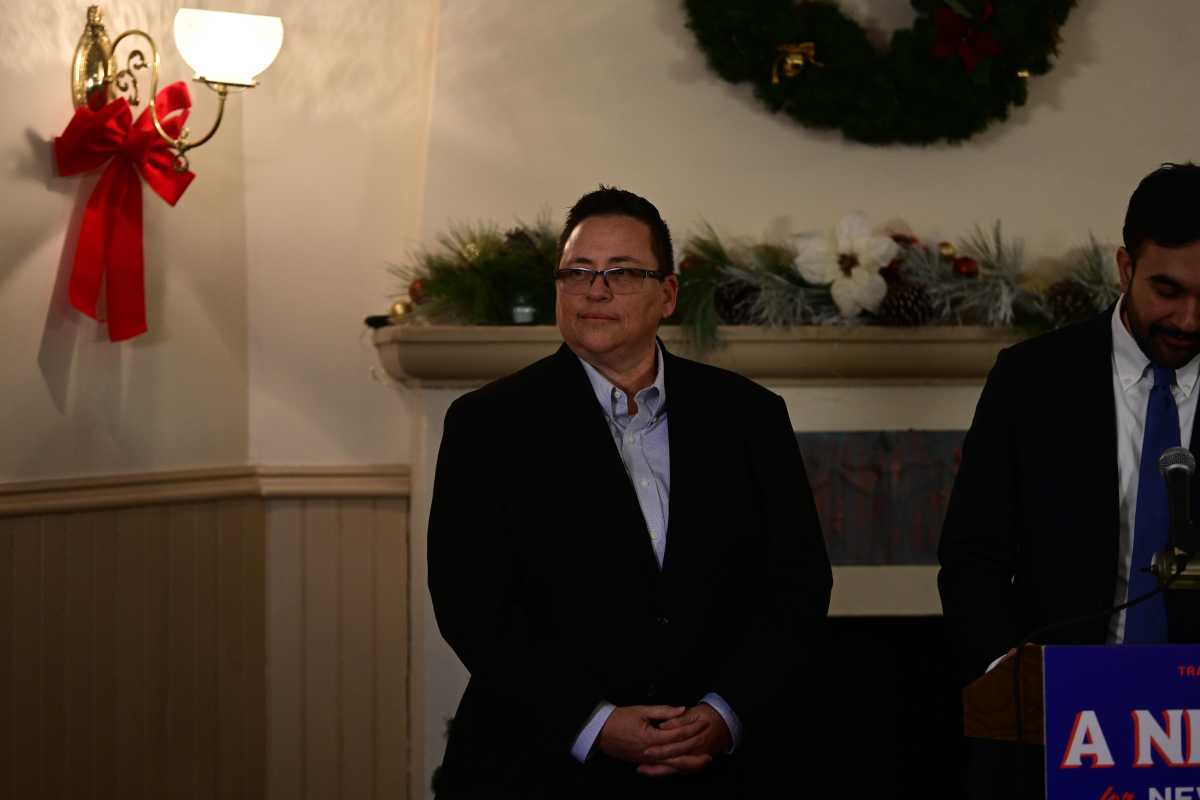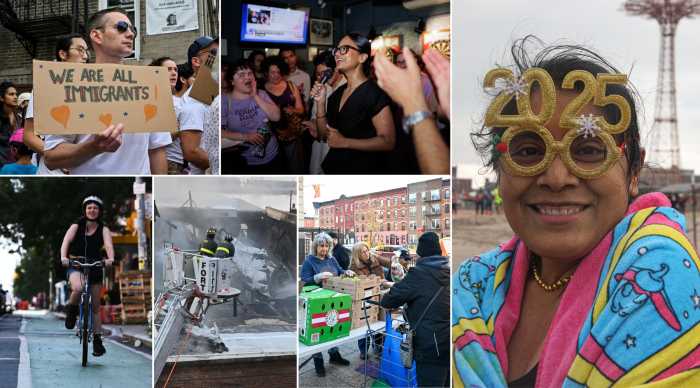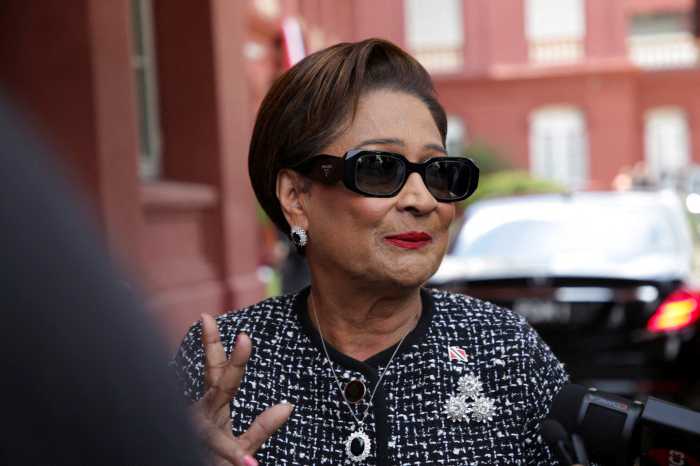The era of constant opinion polling has accelerated and exacerbated a natural human tendency—to join a bandwagon, to be able to say you have gone with the winner.
Fernando Ferrer, the Democratic candidate for mayor, would appear today to face nearly insurmountable odds in his quest to unseat Republican Mayor Michael Bloomberg on November 8. Down by double digits in the polls, he faces a billionaire opponent who refuses to participate in public campaign financing, saying he’s prepared to spend $100 million of his own money.
But the purpose of a newspaper endorsement—and indeed the duty of every voter—is not to rubber stamp the prevailing mood, it is to speak to principle, sometimes even to sail against the wind.
New York City has recently weighed three critical issues that could immeasurably enhance the lives of its gay, lesbian, and transgendered citizens. Michael Bloomberg, despite media sound bites that portray him as pro-gay, stands with the community on none of these challenges.
Fernando Ferrer, in sharp contrast, has pledged his support on all of these issues—and his unstinting support for full marriage equality, dating back to 1996, speaks to his credibility. Our community has embarked on an ambitious agenda of moving the nation toward an embrace of our full civil equality. We will not persuade political leaders to stand with us if we are not prepared to back those who offer us their unqualified support.
On the broader range of issues of concern to all New Yorkers, we believe that the mayor’s outsized campaign spending—coupled with an unchallenged aura surrounding Bloomberg’s accomplishments in the business world—have obscured some clear failures in his leadership. The mayor also skates by with many voters on a political sleight of hand—the nudge, nudge, wink, wink assurance that he is not really a Republican.
Ferrer Is Firm on LGBT Rights; Bloomberg Flip Flops
The mayor’s most egregious betrayal of gay New Yorkers came in his February decision to appeal a State Supreme Court ruling ordering the city clerk to issue same-sex marriage licenses. Bloomberg pleaded that he wanted to avoid the “chaos” that would result if gay marriages recognized by the city were later overturned by the Court of Appeals, the state’s highest.
With at least four other same-sex marriage cases working their way through the New York courts, New York City unions would someday surely be reviewed by the Court of Appeals. But, as Bloomberg critics, including Barney Frank, have pointed out, by blocking gay marriages in the city for now, the mayor has removed one of the most potent weapons we would have had in front of the high court—the prosaic existence of untold numbers of gay and lesbian families protecting their children’s welfare and their financial future through marriage.
Bloomberg used his appeal message to voice his personal support for gay marriage. The language of the city’s appeal, however, chock full of tired arguments about why equality should be denied us, suggests otherwise. In his first three years in office, Bloomberg professed to be agnostic on the issue, once cavalierly pointing to his own failure at marriage in wonder about what all the fuss is about. He promises to lobby his Republican allies in Albany on a marriage bill, but pressed on what efforts the mayor has made to date, his campaign argues, in Catch-22 fashion, that legislative effort is not appropriate because the matter is before the courts.
Bloomberg’s fancy footwork on marriage is of a piece with his shifting stance on a measure, passed by the City Council last year over his veto, that would ensure domestic partners of employees of contractors doing business with the city equal benefits treatment with workers’ spouses. Meeting with gay journalists in the summer of 2001, candidate Bloomberg pledged to support the measure, even saying he would stare down Cardinal Edward Egan should the Catholic Church raise religious objections. Within a week, he had retreated from the bravado about the archdiocese, and by the fall of 2002 had reversed himself completely. The city is now in court seeking to block implementation of the Equal Benefits Law.
Similarly, after refusing to have his Department of Education cooperate in the drafting of the Dignity for All Schools Act—which tackles the problem of harassment and bullying of public school students, including gay and transgendered kids, and was also passed over his veto—the mayor has taken the position that he need not implement the law.
While Bloomberg did sign the transgender rights law in the spring of 2002 and has taken steps to have out-of-state marriages recognized by the city, his stance on issues of concern to our community pales in comparison to Ferrer’s. The Democrat pledges to pull the marriage appeal, order the city clerk to issue licenses to same-sex couples immediately, and implement both the Dignity and the contractors laws.
The choice couldn’t be more stark. If we are serious about winning the marriage debate in this country, this is a moment to demonstrate political fidelity to our friends.
Bloomberg’s Corporate Style of Governance Is Overrated
It was fascinating this week to hear the mayor talk about how he hoped to become more engaged in the rebuilding efforts at Ground Zero. The revival of Lower Manhattan is obviously in the interest of all New Yorkers, but the slow pace there has not been the most troubling consequence of the mayor’s inattention; instead, it is the cost the city must bear because of the police department’s inability to articulate its security concerns about the siting of the new Freedom Tower until this spring, roughly two years into the game. Goldman Sachs, considered key to downtown’s revival, used security as pretext to abandon its plans to build a new headquarters across the street from Ground Zero. When the Freedom Tower was finally re-sited in response to NYPD complaints, Goldman came back to the table—but only at the cost of $150 million in new city and state tax credits and $600 million in new, low-cost Liberty Bond financing, incentives now unavailable for other needed business inducements.
A key talking point in the mayor’s reelection campaign has been his success in wresting controls of the public schools from the old Board of Education, a victory for accountability to be sure. But, the verdict on Bloomberg’s stewardship of the schools is not yet in. Test scores have improved, but the city has been less successful in tackling the excessive high school dropout rate, and the mayor has completely booted the issue of bias harassment and bullying. Bloomberg has been flat-out disingenuous on AIDS education, promising a new curriculum after a decade of advocate efforts, but refusing to issue details until after the election. In March, Dr. Thomas Frieden, his health commissioner, warned AIDS activists, “I don’t know that we will be able to achieve everything that you would want or I would want.”
Michael Bloomberg Really Is a Republican Many Democratic stalwarts have reconciled themselves to the potential for a second Bloomberg term by reasoning the mayor really isn’t a Republican. Don’t you believe them. In the past four years, according to The Times, Bloomberg has given more than $400,000 to Republican committees in Albany and Washington, made individual donations to President George W. Bush and two supporters of the anti-gay federal marriage amendment—Senator Richard Shelby and Representative Hal Rogers—and funded the 2004 Republican National Convention to the tune of $5 million.
Bloomberg’s greatest water carrying, however, came the last day of the convention, with the president in town to speak, when he defied a court order that found that at least 600 protesters had been held illegally—and off the streets—for inappropriately long periods of time, as the national news media focused on Republican unity.
November 8 provides the only opportunity to respond to that sort of leadership in New York, and is an ideal time for the LGBT community to stand up uncompromisingly for our rights. The only choice is Democrat Fernando Ferrer.
gaycitynews.com


































